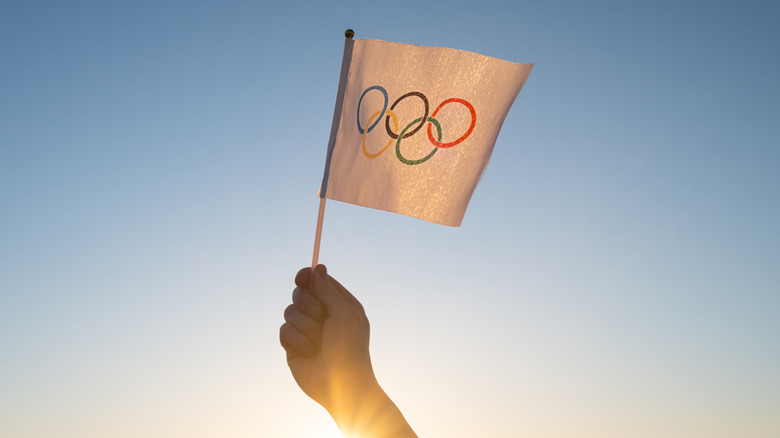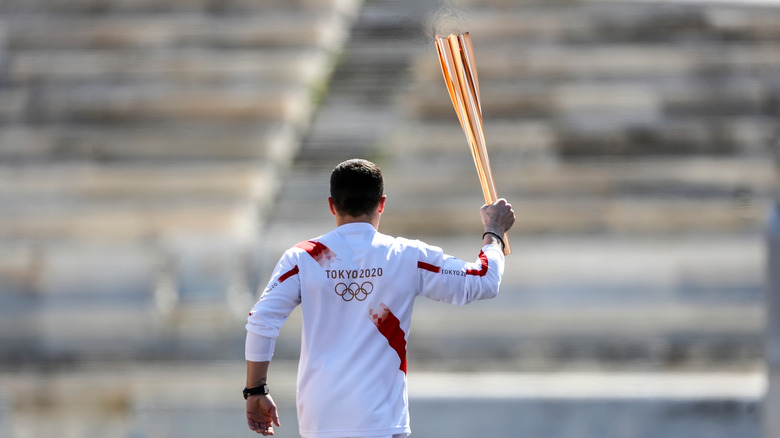TikTok Reveals What Athletes Really Eat At The 2021 Olympics
After a year's delay, the Olympic games in Tokyo are underway. Perhaps just as important is the fact that this is the first Olympics to have TikTok users, as the app was created in September 2016, according to Sixth Tone. App users can give the rest of us a chance to see every aspect of the experience, including what the athletes eat.
Erik Shoji, a member of the American volleyball team, has taken full advantage of this to present a travel vlog through his TikTok account. He actually began it before arriving in Japan, showing what the volleyball team was fed in preparation for the competition. The video shows collagen protein, eggs, oatmeal, and all of the other muscle-honing foods you would expect. The first day in Japan, Shoji showed his hotel breakfast of fruit, eggs, rice, sausage, and some toast.
In the Olympic village, Shoji explains in another video, there are two dining halls: the main hall and one more casual. The casual hall only offers Japanese food, and since he was in Japan, Shoji opted for that venue. He featured somen salad, which at its base is a cold noodle salad, and a musubi with teriyaki beef, grilled pork, corn, and okonomiyaki. Shoji then had fruit for desert. The next day, Shoji tried the food in the main dining hall, showing himself eating sushi, pork dim sums, delicious gyoza, and Japanese curry. He seemed to enjoy everything he ate.
Who feeds the Olympians?
A question that naturally arises in the age of the coronavirus is how does the committee running the Tokyo Olympics feed the international horde of athletes confined within the Olympic Village? The challenge is similar to what restaurants have been facing for the last 16 months.
A report by KTVE, the news station serving southern Arkansas, explains that the athletes have been given a playbook that encourages them to keep meals shorter than 10 minutes, and for those with more flexible schedules to arrange to eat at less busy times. In terms of actual requirements, participants have to disinfect wherever they eat, either dine alone or observe social distancing, and try to stay away from residential Japanese workers. Each eating spot also sports plexiglass dividers to keep contact to a minimum.
A bigger restriction is reported in the South China Morning Post, which explains that the spectator ban for this Olympics further hurts the stricken restaurant industry in the city. "Before the pandemic, 80 to 90 per cent of our guests were from overseas," Yoshihiro Narisawa, of two-Michelin-star Narisawa, explained. Still, these are needed and it's a reminder that the world has not returned to the prepandemic times.

